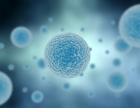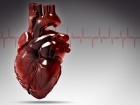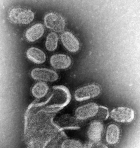Press monitoring
Malarial mosquitoes suppressed in experiments that mimic natural environments
28.7.2021 | Press monitoring
Researchers have shown "gene drive" technology, which spreads a genetic modification blocking female reproduction, works in natural-like settings. The team, led by researchers from Imperial College London, Polo GGB and Liverpool School of Tropical Medicine were able to suppress populations of a malaria-carrying mosquito in a year-long...
Bioplastic made of nanocellulose and mango to improve food preservation
26.7.2021 | Press monitoring
A research team at the University of Cadiz (Spain), together with researchers from the University of Aveiro (Portugal) from the research group Biopol4fun, have developed a bioactive or functionalised plastic made from nanofibrillated cellulose and mango leaf extracts that preserves food longer than non-functionalised plastics. This packaging is...
RNA breakthrough creates crops that can grow 50% more potatoes, rice
23.7.2021 | Press monitoring
Manipulating RNA can allow plants to yield dramatically more crops, as well as increasing drought tolerance, announced a group of scientists from the University of Chicago, Peking University and Guizhou University. In initial tests, adding a gene encoding for a protein called FTO to both rice and potato plants increased their yield by 50% in...
Scientists build tiny virus traps out of DNA origami
21.7.2021 | Press monitoring
Researchers at the Technical University of Munich (TUM) have developed a new method to treat viral infections by making traps. The team folded DNA into nano-capsules with specialized binding points inside them, which could grab hold of viruses and render them inert. For the last few years the team has been experimenting with programming DNA to...
Novel nanoparticles react to radiotherapy to kill cancer from within
19.7.2021 | Press monitoring
Radiation therapy is currently one of the best treatments we have against cancer, but it could benefit from being more targeted to spare healthy cells. Now, researchers in Japan have developed nanoparticles that can penetrate tumors and kill them from within, after being activated by external X-rays. Normally, radiation therapy works by damaging...
Modified yeast inhibits fungal growth in plants
16.7.2021 | Press monitoring
About 70–80% of crop losses due to microbial diseases are caused by fungi. Fungicides are key weapons in agriculture's arsenal, but they pose environmental risks. Over time, fungi also develop a resistance to fungicides, leading growers on an endless quest for new and improved ways to combat fungal diseases. To gain entrance into plant tissues,...
Exosome spray may be better able to heal damaged hearts
14.7.2021 | Press monitoring
After someone has suffered a heart attack, non-beating scar tissue grows back in place of the damaged cardiac tissue, leaving the heart permanently weakened. A newly developed spray-on medication, however, may someday help change that. Stem cell therapy is one of the main methods that has been suggested for regrowing cardiac tissue on damaged...
World-first CRISPR-edited sugarcane helps reduce environmental impact
12.7.2021 | Press monitoring
Sugarcane is an important food crop, but it’s large environmental impact means there’s plenty of room for improvement. Unfortunately it’s tricky and time-consuming to breed new varieties, but now researchers have used CRISPR gene-editing to do so quickly and more easily. Sugarcane is a key source of sugar, obviously, but that’s not its only...
Harnessing AI to discover new drugs inspired by nature
9.7.2021 | Press monitoring
Artificial intelligence (AI) is able to recognize the biological activity of natural products in a targeted manner, as researchers at ETH Zurich have demonstrated. Moreover, AI helps to find molecules that have the same effect as a natural substance but are easier to manufacture. This opens up huge possibilities for drug discovery, which also...
The mRNA flu vaccine race heats up with two human trials commencing
7.7.2021 | Press monitoring
Biotech firm Moderna has commenced human trials testing an mRNA influenza vaccine targeting four separate viral strains. Building on its profoundly successful mRNA COVID-19 vaccine, the company is ultimately planning to develop a single vaccine against multiple respiratory viruses. It is impossible to understate the incredible success of mRNA...
































